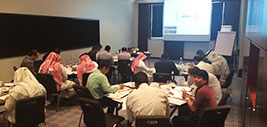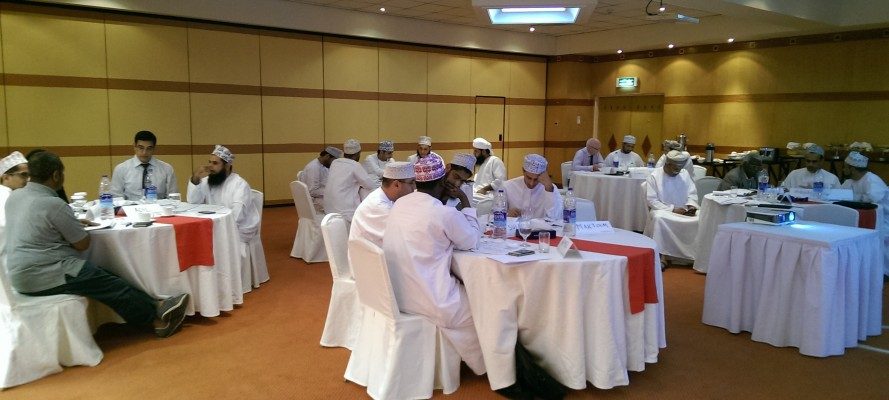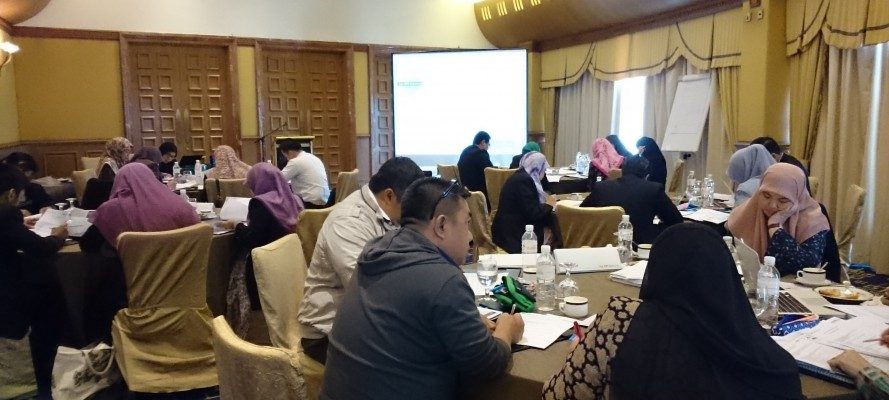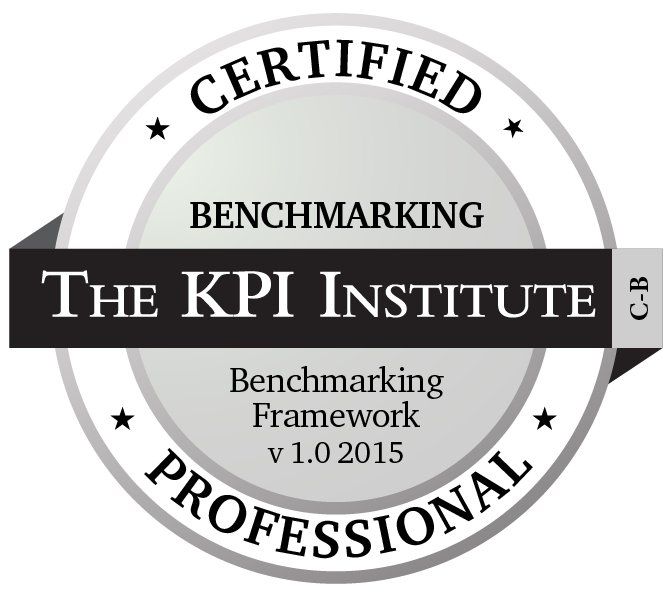C-B
Certified Benchmarking Professional
 The benchmarking methodological uniqueness is represented by the identification of those processes that lead to superior performance, followed by the analysis of the best practices behind that success. Benchmarking offers the opportunity to compare an organization’s performance against industry competitors, noting strengths, weaknesses, and different ways of executing projects.As successful businesses constantly focus on improving the quality of their processes, products and services, benchmarking comes as one of the best approaches in achieving innovative ideas and superior procedures within the organization, through finding and implementing best practices.In order to ensure a successful benchmarking study, professionals should not only become familiar with how to drive a good selection of the variables to be measured, but also how to determine the comparison compatibility of the measured processes and allocate the resources accordingly.
The benchmarking methodological uniqueness is represented by the identification of those processes that lead to superior performance, followed by the analysis of the best practices behind that success. Benchmarking offers the opportunity to compare an organization’s performance against industry competitors, noting strengths, weaknesses, and different ways of executing projects.As successful businesses constantly focus on improving the quality of their processes, products and services, benchmarking comes as one of the best approaches in achieving innovative ideas and superior procedures within the organization, through finding and implementing best practices.In order to ensure a successful benchmarking study, professionals should not only become familiar with how to drive a good selection of the variables to be measured, but also how to determine the comparison compatibility of the measured processes and allocate the resources accordingly.3 Key Business benefits
- Reach performance improvement by receiving guidance and international benchmarking expertise on conceiving and applying an optimum benchmarking plan;
- Achieve excellence in your organizational processes and initiatives by applying benchmarking best practices;
- Attain superior results by managing performance gaps based on benchmarked data.
- Improve your organizational processes by applying benchmarking best practices;
- Link benchmarked data to your organizational strategy and performance objectives;
- Set up and apply a benchmarking plan in your own organization, in order to increase competitiveness;
- Acquire strong competitive insights from benchmarking specialists’ experience and best practices examples to suit your organization’s reality;
- Gain professional recognition of your personal benchmarking knowledge and capabilities by obtaining the certification granted by The KPI Institute.

- Associate benchmarking objectives with the organizational strategy;
- Design a benchmarking plan for your organization;
- Understand the fundamentals of data collection and analysis;
- Assess performance gaps according to benchmarked data;
- Select the relevant benchmarks and establish a monitoring process.
Day 1 – Introduction to benchmarking
Benchmarking overview
- Definitions and terminology;
- The advantages of benchmarking;
- Types and styles of benchmarking;
- Governance;
- Cost-Benefits analysis;
- Stages and processes of benchmarking activities;
- Activity: Design a benchmarking process.
How to develop a benchmarking plan
- Scope establishment;
- Purpose statement development;
- Benchmarking team;
- Organization strategies and benchmarking targets;
- Benchmarks identification;
- Benchmarking partners;
- Project Management techniques;
- Activity: Develop a benchmarking plan
Day 2 – Data collection & analysis
Data collection
- Data collection process;
- Data collection instruments;
- Secondary research;
- Questionnaire development;
- Activity: Design a questionnaire.
Data governance
- International data reporting standards;
- Data adjustment for benchmarking;
- Data quality;
- Value drivers and internal capabilities;
- Activity: Determine data quality errors.
Data analysis
- Logical framework for data analysis;
- Data comparison;
- Identification and analysis of performance gaps;
- Activity: Conduct data analyses based on various
Day 3 – Value generation
Insight Generation
- Initiatives proposal to close performance gaps;
- Develop action and implementation plan;
- Adapting improvements;
- Monitor and report process;
- Activity: Practice on various methods for closing performance gaps.
Best practices in benchmarking
- Illegal benchmarking practices;
- Guides, networks and resources;
- Examples of best practices;
- Activity: Elaborate a benchmarking plan.
Review and Certification Exam
- Course review;
- Certification Exam.
1. Course materials that consist in:
- Course slides
- Course notes
2. Premium Subscription on smartKPIs.com available for 6 months, providing access to 500 fully documented KPIs and over 20.000 KPIs enlisted.
3. One research report from the Top 25 KPIs series.
4. Free access to all webinars from the 2014 Performance Management series.
- Persons interested in benchmarking practices, data analysis and comparison, as well as performance improvement. Entrepreneurs, analysts and professionals from different fields, interested in acquiring the knowledge needed to understand benchmarking processes and methodologies.
- Top/middle/lower management staff like executives, operational managers and analysts. Individuals from top/middle/lower management, regardless of their field of expertise, responsible with improving organizational performance through internal benchmarking practices.
- Experts from both delivery and support functions such as finance, accounting, project management, human resources, sales, marketing, logistics, quality control and improvement, strategy/planning and operations.
This course will be delivered by one of our trainers. Our faculty are certified master trainers, with abundant experience as both practitioners and education providers. Having both professional and academic experience, our trainers are able to bring the depth and breadth of their knowledge to our courses.
Being extensively certified reaffirms our credibility as a training provider and also supports our goal of delivering consistent quality to our valued clients.
For more details visit Our Faculty page.

Pre-course
This part of the learning experience is meant to ensure a smooth transition to the face to face training. Participants are required to take the following steps:
- Needs assessment – complete a questionnaire to determine a tailored and relevant learning experience;
- Pre-course evaluation quiz – take a short quiz to establish the current level of knowledge;
- Guidance and schedule – analyze a document presenting guidelines on how to maximize your learning experience;
- Forum introduction – share an introduction message to present yourself to the other course participants;
- Expectations – share your expectations regarding the training course;
- Pre-requisite reading – go through a series of documents to better understand the core-course content.

Core Course
The “Certified Benchmarking Professional” training provides an interactive practice-based learning environment in which participants focus on:
- Analyzing how to ensure a successful benchmarking study by following a well-defined process, selecting the benchmarking partners accordingly and implementing a logical framework for data analysis in order to identify performance gaps;
- Examining practical insights for developing a benchmarking plan, along with aspects pertaining to the assessment of data collection and governance, data analysis process and benchmarking best practices;
- Gaining both theoretical knowledge and practical skills in benchmarking research, which will enable them to start a benchmarking implementation project in their own organization.

After-Course
The learning process is not finalized when the core-course ends. Participants are required to take the following steps:
- Forum discussions – initiate a discussion and contribute in a discussion opened by another participant;
- Action plan – create a plan for the actions and initiatives you intend to implement after the training course;
- In-house presentation – create and submit a short PowerPoint presentation to present your colleagues the knowledge you have accessed during the training course;
- Additional reading – go through a series of resources to expand your content related knowledge;
- Learning journal: reflect upon your 3 stages learning experience and complete a journal.
The certification process is finalized only when you complete all of the 3 stages of the learning experience. Nonetheless, you will receive a:
- Certificate of Attendance: after participating at the 3 days of on-site training course;
- Certified Benchmarking Professional diploma: after you have successfully completed all of the 3 stages of the learning experience.
We strongly recommend that you obtain the Certified Benchmarking Professional title, as this endorses your skills and knowledge related to this field.
- Highlights of the training sessions - Get a quick insight into the course content and structure.
- Advanced Data Comparison Techniques Fact Sheet – Understand the use of normalization and follow clear guidelines to ensure effective benchmarking.
- Benchmarking process Template - Discover the stages of a benchmarking process and align your strategy accordingly.
- Supplier Performance Articles- Grasp a sample of our acumen and best practices through this fair selection of valuable articles.
You can check our course locations and dates here.











